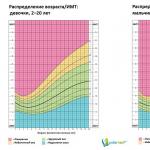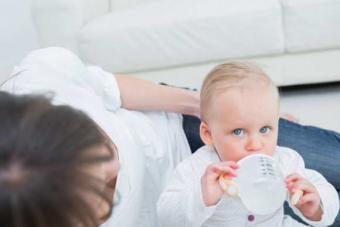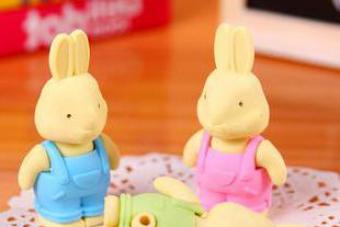Every person needs water to maintain their vital functions. It is not necessary to exclude it from the diet of infants, especially those who are bottle-fed. Many mothers wonder what kind of water to give their babies. To answer this question, you need to know what effect it has on the body and what properties it has.
A small child gets enough fluids through breast milk. But this only applies to the first month of life. As the child grows, physical activity also increases, the child sweats a lot. To replenish the lost moisture, he must drink enough fluids. This is especially true for babies who are fed with formula.
How much fluid does a small body need? The baby should drink 60 ml of water per day. It does not need to be heated too much. The liquid should be at room temperature (23-24 degrees) or slightly warmer. Every month, the daily dosage increases and by the end of the year should be about 100 ml.
The water should be damp and should not be boiled. Raw water contains many trace elements necessary for the development of the body and the full functioning of the internal organs. During boiling, all substances die. Before giving the child to drink, the water must be filtered.
If the child is prone to constipation, then you should know that boiled water further strengthens the stool.
What to consider
Some experts agree that it is not necessary to give water to a child for up to six months. This is explained by the following points.

- Water disrupts the intestinal microflora, and there may be a risk of developing dysbiosis. During breastfeeding, along with nutrients, beneficial bacteria enter the body, which are colonized in the intestines. They help the digestive organs work in a normal, healthy way. Water can imbalance this process.
- The body of a newborn baby in the first months adapts to new conditions. Internal organs continue to form and do not fully fulfill their functions. This also applies to the kidneys. Water carries an extra burden on this organ. It contains more salts than breast milk. The main function of the kidneys is to remove excess salt from the body. The danger is salt stagnation.
- Water can kill a child's healthy appetite. As a result, he will not receive the required amount of nutrients and will stop gaining weight.
- The lactation process is also in danger. Sucking stimulates the breast. Milk is produced in the right amount. If you give water at night instead of milk, then this process is disrupted. It is at night that the hormone prolactin is produced in large quantities, which stimulates the production of daytime milk.
- By giving bottle water to drink, there is a danger that the baby will refuse to suckle. The fluid from the nipple slot flows easier and faster, you do not need to exert force to get full.
When is water needed
The need for water increases after one month of age of the newborn. By this time, breast milk ceases to fully fulfill the function of quenching thirst. How much water can you give the first time? You need to start accustoming to water with a few teaspoons.

When is additional fluid simply necessary?
- It is necessary to drink a lot of water in the summer when the weather is hot. And in the winter, when the room is heated.
- Children. those prone to excessive sweating should drink the required amount of fluids per day.
- During colds, especially those accompanied by an increase in temperature, it is necessary to give fluid. She is able to remove viruses from the body.
- It is not uncommon for young children to experience stool-related symptoms. With diarrhea or constipation, you just need to drink water.
- In the first month, children may develop jaundice. This disease goes away faster when the baby drinks a lot of fluids.
Here are some tips for adding fluid to your diet.
- In some cases, the liquid can help wean babies from night feeds. A child who drinks water instead of milk will soon completely stop waking up for night feeding.
- Do not force the child to drink water. The child's body itself lets you know how much fluid is needed. If he cries, is naughty, pushes the bottle away, then offer to try at another time... The baby may not need to drink until 9-10 months.
- Getting your baby to drink water when needed (bottle-feeding, complementary foods, or hot weather) is to get his attention. You can start giving compotes from dried fruits. In this case, it will be easier to accustom to water.
- If the child drinks more water than the norm, there is a possibility that he will refuse to eat. Or eat it in small quantities. The danger is that the body will not receive enough vitamins and minerals that make up breast milk. Mom should carefully monitor how much water the baby drinks.
- How many grams of water should a child drink at one time? A single dosage should not exceed 20 grams. When the dosage is not exceeded, it will not create an unnecessary burden on the urinary system and kidneys. It is better to offer to drink from a spoon instead of a bottle.
- If the baby drinks milk just before feeding, then he will not eat. This should not be done. It is better to teach to drink an hour before feeding, or immediately after feeding.
- It is necessary to give the child only good quality water. An allergic reaction may occur in the form of a rash, cough, stool disorders.
- Mineral water, both with and without gases, is also harmful to a small organism. It contains a lot of salts.
- For constipation, you can make water with raisins. To do this, pour a little raisins with boiled water and leave for several minutes. If you teach the child to this infusion, then the chair will improve.
- If the child drinks a lot of fluids, does not drink the required amount, you need to consult a doctor. This can be a sign of a disease such as diabetes.
What water should you choose
The ideal option is special bottled baby water, which can be found on store shelves or in pharmacies. It completely goes through all the stages of cleaning, still and ready to use. You can not only drink it, but also cook your baby's favorite dishes: cereals, soups, mashed potatoes.
It is not worth risking with the water that flows from the tap. It may contain pathogenic microbes that adversely affect the functioning of the body.
If the water has passed through a special purification filter, then you can not be afraid to offer the baby to drink.
Melt water is considered beneficial for the body. Purified liquid is poured into a container and placed in a freezer. When it is completely frozen, it should be removed from the freezer and placed in a warm place. Do not give your child cold water to drink. The nasopharynx of newborns is not yet strong and inflammation may begin.

A baby should not be given carbonated water. Mineral water with gases is also prohibited. May harm the digestive system.
Mineral water is approved for use in children over one year old and only for the special purpose of a specialist.
You don't need to add sugar or other sweet syrups to the water. It can harm the functioning of the endocrine system or damage the tooth enamel. You need to accustom yourself to ordinary filtered water.
Signs of dehydration
There are several signs that indicate that a child is in urgent need of water.
- Apathy, lethargy.
- There is a dry mouth (dry lips, no saliva).
- The fontanelle sinks.
- Rare urination.
- The urine takes on a strong unpleasant odor and changes color.
What do we have to do? In these cases, frequent latching is indicated, as well as additional supplementation between feedings.
Several options for how to give your child some water.

After the parents have weighed the pros and cons of additional supplementation of the baby, the right decision will be made. A consultation with a pediatrician will help you make the right choice. Taking into account the peculiarities of the development of the child's body and the characteristics of lactation, he will help determine the timing of the introduction of fluid. Will tell you how much water you need to give.
According to the recommendations of the World Health Organization, breastfed babies should not be supplemented with water until 6 months of age. They get the necessary amount of fluid from breast milk. For children growing on artificial feeds, it is recommended to give 20-30 ml of water between feedings. As the child grows, the amount of fluid needed also increases.
How much liquid should a child drink
The main criterion for determining the amount of fluid is the child's desire. If he drinks reluctantly, you should not force him to do it. At the same time, if he drinks the offered water greedily, do not take away the bottle when he drinks more than normal.For the first six months, a child needs 100-180 ml of fluid per day. If the baby is bottle-fed, offer him 20-30 ml of water between feedings. Breast milk is 85% water, so you don't need to force-water your baby if he resists.
From six months to a year, the required amount of liquid increases to 260 ml per day. After that, 300-400 ml of liquid per day is required. At the age of four, this figure doubles to 800 ml. And a child from four to seven years old should drink about a liter of water per day.
If the child is sick, the amount of fluid can be increased to help clear the infection out of the body faster.
When you need to drink a child
With artificial feeding, the baby needs more water than. In the child's body, a greater number of end products are formed, for the elimination of which water is needed.If the air or indoor temperature is above 25 degrees, it is recommended that the baby be supplemented between feedings.
Water is necessary for the baby in case of dehydration due to intestinal disorders or fever. Dehydration can be determined by the following signs: rare urination, dry lips, wrinkling of the skin, drowsiness, pale hands and feet.
How to give a child to drink
If the baby is healthy, juices, fruit drinks or clean water are suitable as a drink. It is better if it is a special water for children, it contains minerals necessary for a child. The shelf life of an open bottle is 2 hours at room temperature or a day in the refrigerator.
In case of any health problems, the doctor may prescribe herbal teas. Chamomile helps with bloating, dill water helps with
In order for the growth and development of a small person to correspond to the norm and indicators of health, his parents need to monitor his drinking regime. not only replenishes the baby's fluid loss, but also stimulates the immune system, increases its protective functions. After all, no one will argue with the fact that the child's health is the main concern of parents. Even such an elementary question as “how much liquid should a small child drink?” Should worry parents.
Many sources - articles, textbooks, advertisements, educational brochures for mom indicate that water is necessary for human development. It is known from biology and anatomy that we are 80% water, and this liquid directly affects all the processes that occur in our body. You will be surprised, but very often the development of certain diseases suggests that the body is sorely lacking in water.
The sooner you teach your child to drink water correctly, the easier it will be for him to maintain a competent drinking regime in adulthood.
Effect of water on the body
Water has an extremely beneficial effect on the general condition and well-being of a person. The constant use of water normalizes metabolism, helps to lose weight, maintains optimal body temperature, regulates blood pressure, reduces the manifestation of allergic reactions, relieves fatigue, and improves mood.
The lack of water in the body, defined in medicine as dehydration, deprives of vitality, leads to a feeling of fatigue, and provokes a number of diseases. The optimal drinking regimen should be observed during illness and on very hot days.
If you do not consume enough water per day, then this can provoke pathological conditions such as:
- Allergy;
- Infectious manifestations;
- Kidney stones;
- Disruption of the gastrointestinal tract;
- Metabolic disease;
- Diseases of the oral cavity.
It is very important for a child's body to receive the required amount of fluid, since it is in the first years of life that all internal organs and systems of vital activity of a little person are formed. You can be sure that the sooner you teach your child, the less he will get sick and you will visit the doctor much less often.
What water to give?
How clean the water will be for your child depends on his well-being and, of course, health in general.
Never give your child untreated tap water (even if you boil it first). Well water or bottled water sold on tap is not suitable for a child to drink. Why? It is very easy to explain this - children's drinking water must meet the SanPin standards (regulatory sanitary requirements). What are these requirements?
Sanitary standards and requirements for baby water:
- Children's water should have a balanced composition of minerals and mineral salts - their amount will be less than in ordinary "adult" water;
- During the manufacturing process, such water is not treated with various kinds of chemicals;
- No preservatives, flavors, colorants;
- If you buy water in bottles, then be sure to pay attention to the labeling, it should indicate - "baby water".
- The alkalinity of baby water should not exceed 6.5 mEq / l, hardness - no more than 7 mEq / l.
When buying water, pay attention to the labeling. There must be mandatory items such as:
- Water name;
- Manufacturing date;
- Storage conditions;
- Shelf life;
- Chemical and physiological composition;
- Complete information on product registration;
- Water spill location.
Consumption rates
Are the water consumption rates different at one month of a child's life and at 2 years of age? Below are the norms for the consumption of drinking water by children.
If a child under one year old
As a rule, a child under 6 months old (if he is breastfed) does not need additional supplementation. All of the beneficial nutrients are found in breast milk. At this point, it is important for the mother to drink enough clean water to give it in breast milk to the baby. It is recommended to drink 2 to 3 liters of water per day. If the child is on, then he needs water. But, there is no need to be zealous here either, because water very quickly fills the child's small stomach, creating a false feeling of satiety.
If a child was born in a very hot summer, then it makes no difference what kind of feeding he is now on - on breast milk or formula, he needs to be supplemented with water. Enough 1-2 tsp. a day to meet the baby's need for water.
A child needs water in case of fever, flatulence, diarrhea, vomiting, hiccups.
A bottle-fed baby can drink about 200 milliliters of water a day.
Important! In case of diseases of the cardiovascular and urinary systems in a child, the norms of water consumption should be agreed with the attending physician.
To summarize, the average child under 12 months needs to consume 50 ml of water per kilogram of body weight. That is, if a child weighs 6 kilograms, then on average he should drink about 300 ml of water. Approximately the same amount of water is needed for children from 1 to 3 years old.
You can find out that a child has a water deficiency in the body by symptoms such as:
- Dry chapped lips;
- Dry skin;
- Lack of urination for 6 hours (can be determined by dryness or wetness of the diaper);
- The child is capricious, restless, nervous;
- Urine has a strong strong odor;
- The child drinks water very greedily.
The older the child gets, the more water he needs to consume. For example, for children aged years, the daily water intake is 1.5 liters.
Read also
Physiotherapy in children
Physiotherapy is now used undeservedly little, but it is a very effective way of treating and preventing various kinds of diseases. About the methods of physiotherapy, its principles and contraindications, read on ...
All doctors and printed publications speak about the benefits of water for the human body, but few people stipulate how much water we need for a normal life.
Quite often, parents are faced with two opposite situations: the child drinks a lot of water - and the child hardly drinks water. The mothers of such children are concerned about this problem and begin to restrict the use of water or, conversely, try to force drink. So, where is it "golden mean" and how much water should a child drink?
To begin with, it is worth noting that we refer to water as ordinary water - spring, bottled, boiled, filtered, etc. Juices, compotes, sweet water, carbonated drinks, milkshakes, fruit drinks, tea, herbal decoctions, infusions - to the concept of "water" do not apply.
What is the best water to give to a child?
Correct drinking water, which is essential for the normal growth and development of the child, must comply with the hygienic standards set out in SanPiN No. 2.1.4.1116-02. Definitely, the water that flows in the apartment from the tap is unlikely to meet these standards and should not be given to children to drink. If you have a well or well, then this water may be more drinkable. But to find out, take the water samples to the laboratory, where they will conduct a special study and give you a professional opinion. It is best to let the kids drink bottled drinking water. This water must be labeled "premium water" or "baby water".
Requirements for "baby water":
Balanced mineral composition. Remember, the amount of salts and their concentration in baby water is much lower than in regular water.
Should not contain preservatives, including carbon dioxide and silver, microorganisms.
Baby water must not be treated with chemicals.
Child's water intake
Consumption rates depend on the age of the child, nutrition, lifestyle, season. It must be remembered that water enters the child's body not only with clean water, but also with porridge, soup, vegetables and fruits.
Children under one year old
Those who are only breastfed do not need water (WHO recommendations). If the child is bottle-fed or complementary foods are introduced, then the child needs to be supplemented with 100-150 ml of water per day. In the hot season or at elevated body temperature, the volume of water can be increased, provided that the baby drinks it and does not spit it out. As soon as solid food appears in the diet, the child must be given water at the rate: child's weight X 50 ml - volume of liquid food (soup or milk) X 0.75.
For example, your baby weighs 10 kg and eats 300 ml of milk per day:
1.10 kg. X 50ml. \u003d 500 ml.
2.300 ml. X 0.75 \u003d 225ml.
3.500ml. - 225ml. \u003d 275 ml.
225 ml is the amount of water that your baby should drink per day.
Children from 1 to 3 years old
At this age, children already walk, run and actively play outdoor games. Therefore, at this age, the amount of water required reaches 800 ml. Do not forget that all children are different. If your child prefers to stand next to you and watch the games of other children, rather than participate, then 500 ml per day may be enough for him. But if your child is actively running, then the need for water can increase up to 1.5 liters.
Water should be drunk strictly between meals, 20 minutes before meals or 20 minutes after. Drinking water together with food is not recommended, as the digestion process worsens.
Children from 3 to 7 years old
The consumption rate at this age will be from 1.5 to 1.7 liters. The boundaries of the norm may vary depending on the activity of the child and his gender.
Children over 7 years oldshould drink water at an adult rate - 1.7-2 liters. We increase the amount of water if the child goes in for sports or is sick.
Should a newborn be given water? How and when to water a baby? How can you give your baby a drink? All these questions concern many young parents, while the opinions of doctors on this matter differ: some recommend giving a newborn drink in addition to breast milk, while others believe that the first few months, babies do not need any additional fluid. Let's try to understand this topic, because the drinking regime of babies is just as important as the food.
Water is the most important component of the human body. So, the body of an adult consists of water by about 60%, in children older than one year old by 66%, and in newborn babies by 80%. Taking part in all metabolic processes inside the body, water has a direct effect on the general state of human health. Due to the fact that babies under 1 year old have a metabolic system only developing, their body is very sensitive to water deficiency. In addition, in children it happens much faster than in adults, and the consequences of this process can be very serious for the health of the baby (confusion of the child's consciousness, convulsions, lethargy of his movements, etc.).
Do I need to supplement the baby with water while breastfeeding?
Should a breastfed baby be given any liquid other than breast milk?
The World Health Organization has a clear answer to this question - up to six months, no supplementation of babies, with the exception of certain medical indications.
- the results of numerous studies;
- years of experience in breastfeeding.
Nature itself took care of everything when it decided to give mothers the opportunity to feed their children for at least one year.
note
Breast milk is approximately 90% biologically active, structured water, which is easily absorbed and does not overload the baby's immature kidneys. The most watery is the foremilk that the baby receives at the beginning of each feed. That is, the baby first drinks sweet water, and after that, when he gets to the "back" milk saturated with fats, he eats.
In addition, it has been proven that milk is more saturated with fats in cold weather, and in the hot season it increases the concentration of water, which allows you to fully meet the changing needs of the child.
The main arguments against supplementing the baby with water in the first six months after birth:

When bottle-feeding a baby with drinking water, it is very important to keep track of how much the baby drinks, since excessive water consumption can provoke the onset of such a dangerous condition as "water intoxication" associated with the washing out of sodium from the blood.
In the presence of medical indications, when the baby is sick, loses a lot of water and a sluggish state is noted, the attending physician may recommend feeding the baby with expressed milk using a spoon or from a cup: this way it will be easier for the baby to get milk than to suck it from the breast, and, accordingly, he will save the energy needed for recovery.
Doctor Komarovsky about adding water

It should be noted that the doctor of the highest category, a very famous pediatrician Komarovsky E.O. has a slightly different opinion regarding the drinking regime of infants. He believes that the baby should be offered to drink water at any age, "And to drink or not drink - the child will decide for himself." And of course, additional drink should be offered to the baby between feedings. In fact, according to the doctor, the drinking problem is of a secondary nature, and it simply does not exist if there is no overheating, that is, if the proper regime is observed in the room: the air temperature is not higher than 19 degrees Celsius, and its humidity is within 50-70 %. If the child has no health problems, but he eagerly drinks water, then overheating occurs, you need to quickly take action.
Video on the topic:
Drinking regime of a bottle-fed baby from birth to six months
If everything is more or less clear with an infant, then the drinking regime of bottle-fed babies depends on many nuances.
So , an important role here is played by what kind of mixture the child eats: adapted or non-adapted.
IN adapted mixtures the ratio of dry and liquid parts can be practically compared with that in breast milk, and under normal conditions and the well-being of the baby adding water to it is not recommended until the beginning... But here it is very important to follow the instructions for diluting the mixture with water, described on the package.
As for unadapted mixtures, then the digestive tract of babies is not able to completely digest them, therefore it is very important to additionally water the child with water, which contributes to the normal elimination of toxins from the body.
note
It is important to understand that additional drinks should be offered to the baby between feedings, so as not to replace the formula with a practically useless liquid.
There are situations when, regardless of the type of mixture, a bottle-fed baby must be supplemented with water, in particular:
- Hot weather.
- Improper baby care - excessive wrapping or feeding with an overly concentrated formula, etc. Improper care symptoms can include:
- dry skin;
- lethargic state of the baby;
- the child urinated less than six per day.
- Medical indications: the baby suffers from an intestinal infection or some other ailment, has a high fever, and so on.
How much should a child drink between six months and a year
From the moment of the introduction of complementary foods, the child, regardless of the type of feeding, needs additional drink... The amount of water that a baby can drink is quite individual. In some cases, even one teaspoon will be enough for the crumb, and sometimes he can drink 50 or even 100 ml with great enthusiasm.
According to statistics, in a normal state and under normal conditions, a child drinks from 50 to 200 ml of water. IN situations, when the baby has to lose a lot of water (high temperature, hot weather, illness, etc.), he is able to drink up to half a liter of liquid.
- Additional drinks should be offered between meals, but not before feeding, so that the baby can eat all of the nutritious food.
- It is advisable for babies to offer any liquid from a spoon or mug. It is better not to use bottles so that later there will be no problems with retraining. In addition, it is with drinking from a bottle that frequent cases of malocclusion in children are associated.
- You don't need to force your child to drink, even if you think they really need extra drinks. When the baby is thirsty, he will ask for a drink himself and will certainly not refuse the offered water.
How to water babies from birth to one year old?
As a rule, in the first year of a child's life, his drinking diet contains:
- water;
- juices and compotes;
- children's herbal teas;
- uzvar.
The best option for supplementing a child is certified bottled baby water, which, as a rule, is also used for diluting powdered milk formula. It is softer in comparison with ordinary tap water, but at the same time it contains all the salts and trace elements necessary for the body.
 As for boiled tap water, then it can be used only for breeding dry baby food, and only if the parents are 100% sure of its safety. However, boiled water should not be used as an additional drink (The well-known doctor Komarovsky adheres to the same opinion), since not only pathogens perish during the boiling process, but all microelements useful for humans precipitate.
As for boiled tap water, then it can be used only for breeding dry baby food, and only if the parents are 100% sure of its safety. However, boiled water should not be used as an additional drink (The well-known doctor Komarovsky adheres to the same opinion), since not only pathogens perish during the boiling process, but all microelements useful for humans precipitate.
From the age of 6 months, the child can be offered juices and non-concentrated compotesbut in small quantities. Many pediatricians recommend postponing the introduction of falcons until 9 months. and older.
Basic rules for the introduction of fruit and vegetable juices, and non-concentrated compotes:
- At first, the amount of juice drunk can be only a few milliliters, and by the year the daily volume of fruit and vegetable drinks increases to 100 ml.
note
It should be understood that most often juices and compotes do not help get rid of thirst, so you should definitely offer your kids drinking water.
- One should start acquaintance with juices and compotes from one-component drinks, and preferably from the least allergenic ones - apple and pear. Further, other fruits and vegetables are gradually introduced. If, when using single-component juices, the baby does not experience allergic or any other negative reactions, then you can start practicing mixed drinks (from 2 or more types of fruits and vegetables).
- When buying juices or compotes, it is important to pay attention to their composition. Preference should be given to products that do not contain any preservatives or sugar.
- Freshly squeezed juices made by the mother just before offering to the baby should be diluted with water in a ratio of 1: 2 or 1: 3. It is important that juices and compotes for the child are prepared from safe, environmentally friendly products. If you are not sure about the proper quality of the fruits or vegetables you have, then it is better to use products specially made for children from stores.
Herbal teas for children deserve special attention. On the one hand, with the right approach, they can bring enormous benefits to the child's body. But on the other hand, the choice of herbal tea should be treated very carefully, since the still immature body of infants can respond with an allergic or some other negative reaction to certain components of the tea. In addition, some types of herbs have a rather strong medicinal effect, so they are not suitable for frequent use.





